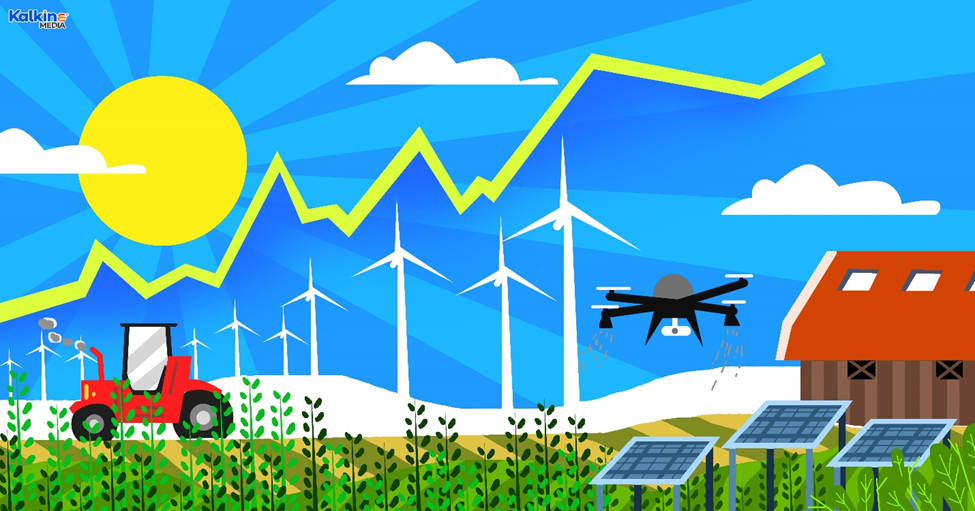Highlights
- The global oil and gas prices continue to soar amid intensifying Russia-Ukraine crisis and tougher sanctions against Russia.
- PM Boris Johnson announced his plans to set out a new energy supply strategy as energy prices continue to rise.
- The UK imports only 5% of its gas supplies from Russia as compared to 40% of gas taken by Europe.
The global oil and gas prices continue to soar amid the Russia-Ukraine crisis and tougher economic sanctions on Russia. At one point the oil prices jumped to over US$139 per barrel, the highest level for almost 14 years.
On Monday, PM Boris Johnson, during a joint press address with Dutch Prime Minister Mark Rutte and Canadian Prime Minister Justin Trudeau, announced plans to set a new energy supply strategy as energy prices continue to rise in the present situation.

© 2022 Kalkine Media®
Speaking at the conference, Johnson said Europe can’t stop using oil and gas overnight, but countries can work together to quickly move beyond Russian energy supplies. It is important to note that the UK imports only 5% of its gas supplies from Russia as compared to 40% of gas imported by Europe.
He also added that the UK government needs to ensure substitute supply and more use of nuclear and renewable energies to improve the country’s energy self-reliance and keep energy bills down for households.
Let us look at five FTSE-listed renewable energy stocks which you may shortlist for investment:
Ceres Power Holdings Plc (LON: CWR)
Ceres Power Holdings Plc is an AIM-listed fuel cell technology and engineering company with a focus to offer clean energy to homes, businesses, and vehicles. The company has recently announced that it has entered into a long-term agreement with HORIBA MIRA to accelerate hydrogen and fuel cell technologies to the international market.
The market cap of the company stood at £1,263.58 million as of 8 March 2022. The company’s shares since the start of this year have given a return of -27.22%. Ceres Power Holdings Plc’s share closed trading at GBX 752.00 on 8 March 2022.
Also Read: NWG, GSK, ITV, WTB, AV.: 5 FTSE 100 companies led by women
Eqtec Plc (LON: EQT)
Eqtec Plc is an AIM-listed is a technology innovation company that manufactures syngas from waste for baseload energy, carbon-negative, and biofuels. The company’s Billingham project variation has reached an agreement to extend the existing, conditional Land Purchase Agreement.
The market cap of the company stood at £66.64 million as of 8 March 2022. The company’s shares since the start of this year have given a return of -37.60%. Eqtec Plc’s share closed trading at GBX 0.78 on 8 March 2022.

© 2022 Kalkine Media®
SSE Plc (LON: SSE)
SSE Plc is an FTSE 100-listed multinational energy company that is engaged in generating renewable electricity and electricity network. The company has recently reported that it has made an application for listing and admission of 1,782,473 ordinary shares to the UK Listing Authority and the London Stock Exchange.
The market cap of the company stood at £16.979.27 million as of 8 March 2022. The company’s shares since the start of this year have given a return of -1.64%. SSE Plc’s share was trading at GBX 1,608.00 on 8 March 2022.
Also Read: VOD, BT.A, AAF: 3 FTSE telecom stocks to buy amid new telecom laws
The Renewables Infrastructure Group (LON: TRIG)
The Renewables Infrastructure Group is the FTSE 250-listed investment trust that focuses its investment on assets generating electricity from renewable sources. The company has recently reported NAV per ordinary share of 119.3p as of 31 December 2021, as compared to 115.3p in December 2020.
The market cap of the company stood at £3,029.04 million as of 8 March 2022. The company’s shares since the start of this year have given a return of 1.46%. The Renewables Infrastructure Group’s share closed trading at GBX 136.00 on 8 March 2022.
Note: The above content constitutes a very preliminary observation or view based on industry trends and is of limited scope without any in-depth fundamental valuation or technical analysis. Any interest in stocks or sectors should be thoroughly evaluated taking into consideration the associated risks.

.jpg)

